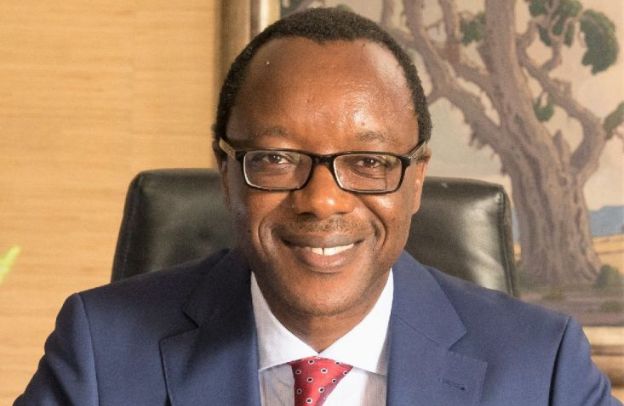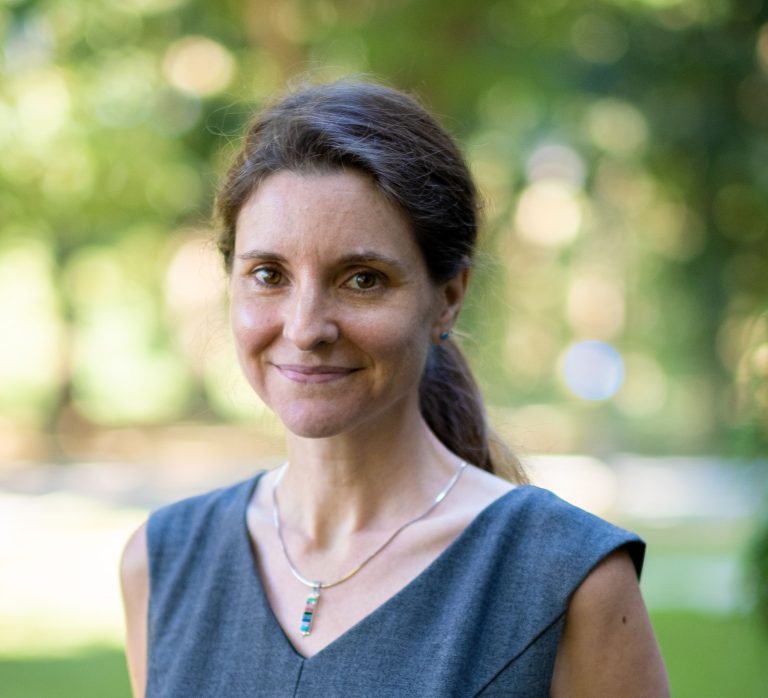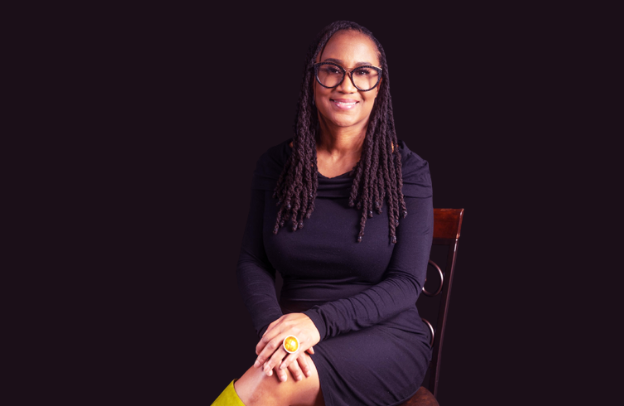Learning About The Future Of Work In Africa With Prof Tawana Kupe

The world of work has drastically changed over the years. Artificial intelligence and automation which used to be like mere speculation now make this shift a reality. Across different industries, the new shift in workplaces is becoming like the mechanization in prior generations of agriculture and manufacturing. You need to watch out.
Want to learn about Business Mindset and Content Creation Strategy? Then, AClasses Content Academy.
What you will learn about Jobs & Careers
Here are the subtopics we are covering in the article series on “Jobs & Careers”
- How To Transform Your Passion Into Business – Jobs & Careers
- How To Find A Better Job – Jobs & Careers
- How To Improve Your Job Competence – Jobs & Careers
- 5 Areas To Improve Your Job Competence – Jobs & Careers
- Learning About The Future Of Work In Africa With Prof Tawana Kupe
The truth is that, while some jobs will be lost, a whole new set of careers and industries will be created, like:
- Data scientists,
- AI researchers,
- And machine learning engineers, just to name a few.
Are you concerned? Is this an exciting moment for you or are you scared? It might simply be according to how prepared you are to face the new changes in workplaces.
Learning About The Future Of Work In Africa
The Future of Work in Africa is a rapidly evolving field that is concerned with ensuring that the continent’s workforce is able to participate in a productive and economically thriving workforce. The primary focus is on creating jobs that are both productive and sustainable, while also addressing the needs of those who are at risk of being left behind, such as the unemployed, underemployed, and marginalized communities.
Global trends, especially the rapid adoption of digital technologies, are having a profound impact on the nature of work in Sub-Saharan Africa. The use of digital technologies is creating new opportunities for workers to participate in the global economy and find new ways to earn a living. At the same time, it is also presenting challenges, such as the need for workers to develop and maintain digital skills, and the threat of job loss due to automation and artificial intelligence.
Moreover, the future of work in Africa is closely tied to the development of the continent’s human capital, with a particular emphasis on education and training. As the job market continues to evolve, workers will need to have access to ongoing education and training opportunities to keep pace with the changing demands of the job market.
Additionally, entrepreneurship is also expected to play a major role in the future of work in Africa, with a growing number of individuals seeking greater control over their careers and work environments. The rise of the collaborative economy, in which individuals and organizations share resources, will also create new opportunities for workers to participate in the global economy and find new ways to earn a living.
The future of work in Africa is a complex and rapidly evolving field that requires a holistic approach, taking into account the interrelated factors of technological advancement, human capital development, and inclusive economic growth. By focusing on these key themes, the continent can build a future of work that is productive, sustainable, and inclusive for all
Helping us to make sense of all these today in Obehi podcast is Professor Tawana Kupe, the Vice-Chancellor and Principal of the University of Pretoria, South Africa.
Some Key Points In This Episode
- What is going to influence the work of the future?
- The role of technology in future work,
- What universities should be doing in the future,
- The opportunities for future work in Africa.
The Full Interview With Professor Tawana Kupe
Here are 8 important things to know about the future of work in Africa
- Growing Digital Skills: With the rise of digital technologies, African workers will need to develop and maintain digital skills to remain competitive in the job market.
- Remote Work: Remote work is becoming increasingly common and Africa is no exception. With the advent of technology, workers are able to perform their jobs from anywhere, reducing the need for physical office spaces.
- Entrepreneurship: Entrepreneurship is growing in Africa and is expected to continue to grow as workers seek more control over their careers and work environments.
- Youth Employment: With a large and growing youth population, Africa faces significant challenges in terms of providing enough jobs to support this population.
- Automation and Artificial Intelligence: Automation and AI will have an impact on the future of work in Africa, potentially replacing jobs, but also creating new opportunities for workers who have the necessary skills.
- Women in the Workforce: Women are underrepresented in the African workforce and face significant barriers to entry, including cultural attitudes and lack of access to education and training. Addressing these barriers will be critical for the future of work in Africa.
- Education and Training: In order to keep pace with the changing job market, African workers will need to have access to ongoing education and training opportunities.
- Collaborative Economy: The rise of the collaborative economy, in which individuals and organizations share resources, will create new opportunities for African workers to participate in the global economy and find new ways to earn a living.
About The Guest: Professor Tawana Kupe
Before joining the University of Pretoria, Professor Tawana Kupe held the positions of Vice Principal responsible for running the university, Deputy Vice Chancellor of Advancement, Human Resources and Transformation, Deputy Vice Chancellor of Finance and Operations, and Executive Dean of the Faculty of Humanities at Wits University.
He holds BA honors and master’s degrees in English from the University of Zimbabwe, as well as a DPhil in Media Studies from the University of Oslo in Norway.
In December 2019, Prof Kupe received an honorary doctorate from Michigan State University in the US, and another from the University of Montpellier in France, in October 2021.
He was the founding Head of the Media Studies Department at Wits University and lectured at Rhodes University.
Prior to his tenure at Rhodes, Prof Kupe worked in various academic capacities at the University of Zimbabwe, including as Chairperson of the Department of English, Media, and Communication Studies.
Prof Kupe has a notable publication record, having authored journal articles, books, and book chapters in his main discipline, media studies, and journalism. He edited the book Broadcasting Policy and Practice in Africa and co-edited Go Home or Die Here.
He is also the Managing Editor of the African Journal of Information and Communication. Additionally, Prof Kupe is a member of the advisory boards of the Journal of African Media Studies and the Global Handbooks in Media and Communication Research series; he also sits on the editorial board of Literary Studies.
In 2020, he was elected to the international council of the International Association for Media and Communication Research. The organization supports and develops media and communication research throughout the world, and encourages the participation of emerging scholars, women, and those from economically disadvantaged regions.
Prof Kupe is the Africa Co-Chair of the Australia-Africa Universities Network, Chairman of the Advisory Board of the Michigan State University-led African Alliance Partnership, and Chairman of the Montpellier University of Excellence International Advisory Board.
Prof Kupe is a board member of the Association of African Universities, the African Research Universities Association, a council member and trustee of the Association of Commonwealth Universities, and the South African representative of the Austria-Africa University Network.
He is also a member of the National Advisory Council on Innovation in South Africa and its representative on the board of ASSAf, and the South African Sustainable Development Goals Policy Support Initiative’s Advisory Committee.
He is an active member of several civil society organizations in the media space and has served as Chairman of the Board of the amaBhungane Centre for Investigative Journalism since 2009.
He has also served as Chairman of the Board of Media Monitoring Africa since 2005, steering the agency in its mandate of promoting media accountability and the role of the media as an integral institution in sustaining democracy.
Prof Kupe is aboard a new organization, Campaign for Free Expression, which focuses on protecting and enabling free expression for all.
He is a popular speaker, academic expert, and regular commentator on issues of media performance on radio, television, and print media in South Africa, for both local and international broadcasters and publications.
You can connect with Prof Kupe at Up.ac.za
Learn More About Obehi Podcast
Obehi Podcast brings you leaders and experts from different industries to share their experiences, relating to Africa and the African diaspora. Listen to Obehi Podcast across different platforms: Spotify, Apple Podcast, YouTube, and much more.
If you find any value in this post, share also with your friends who might need it. Join our Content Creation Academy if you are a Content Creator or Digital Entrepreneur and want to level up your Online Business.





